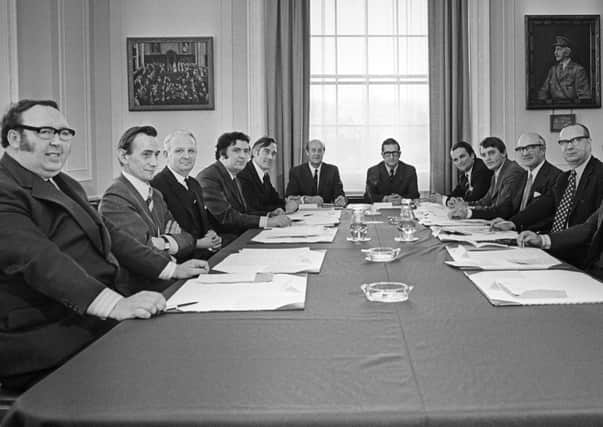John Hume failed to help Brian Faulkner reach a deal which most unionists would support


(The article can be read here: ‘John Hume’s clear rejection of violence will play a pivotal role in shaping the coming battles over history,’ August 8).
However I find it hard to accept his statement that Hume ‘worked with’ unionists at Sunningdale.
Advertisement
Hide AdAdvertisement
Hide AdHis stance towards unionists is better illustrated in Matt O’Dowd’s letter, also published on Saturday (The letter can be read here: ‘I shattered John Hume’s image when I confronted him about his attitude to Protestants’ August 8).


Hume set out his political strategy in September 1972 in an SDLP policy paper entitled ‘Towards a New Ireland’. It is clear from this that his central goal was not a successful powersharing administration in Northern Ireland, as some have suggested, but Irish unification.
He acknowledged the need for a period of transition, during which Northern Ireland would be jointly controlled from London and Dublin. At the same time, an all-island ‘senate’ would be established to prepare for unification by harmonising laws and drafting a new constitution.
During this interim period, there would be an assembly in which unionists would be required to share power with nationalists.
Advertisement
Hide AdAdvertisement
Hide AdDuring the negotiations which followed on the future government of Northern Ireland, Secretary of State Willie Whitelaw agreed to establish a powersharing assembly, with a less ambitious ‘cross-border dimension’ yet to be specified.
In the first election to the new assembly, in June 1973, Brian Faulkner’s Unionist Party won 24 of the 78 seats: Unionist factions opposed to Whitelaw’s compromise won 26.
In other words, a majority of the unionist electorate rejected the idea of powersharing with a cross-border dimension.
Whitelaw convened the Sunningdale conference in December 1973 to thrash out an agreement on the ‘cross-border dimension’.
Advertisement
Hide AdAdvertisement
Hide AdHume insisted that those unionists who opposed the cross-border dimension should be excluded from the conference, despite Faulkner’s warning that they would exploit this to their advantage.
Far from working with Faulkner to reach a deal which a majority of unionists would support, Hume urged the British and Irish governments to force Faulkner into accepting expansive arrangements for a Council of Ireland which he would prove unable to sell even to his own party.
More realistic voices in the SDLP — Gerry Fitt and Paddy Devlin — warned Hume of the consequences of pushing Faulkner too far.
So did Conor Cruise O’Brien, Labour Party Minister in the Irish delegation. But UK Prime Minister Ted Heath impatiently ignored them.
Advertisement
Hide AdAdvertisement
Hide AdHume’s supporters trumpeted Sunningdale as ‘the vehicle that would trundle unionists into a united Ireland’.
The unionist electorate largely accepted this assessment, as illustrated by the Westminster election result of February 1974, when Unionists opposed to Sunningdale won 11 of Northern Ireland’s 12 seats.
A powersharing executive was formed in January 1974 with Faulkner as chief executive, but it disintegrated after five months in the face of popular unionist rejection.
WB Smith (Dr), Belfast BT15
——— ———
A message from the Editor:
Thank you for reading this story on our website. While I have your attention, I also have an important request to make of you.
Advertisement
Hide AdAdvertisement
Hide AdWith the coronavirus lockdown having a major impact on many of our advertisers — and consequently the revenue we receive — we are more reliant than ever on you taking out a digital subscription.
Subscribe to newsletter.co.uk and enjoy unlimited access to the best Northern Ireland and UK news and information online and on our app. With a digital subscription, you can read more than 5 articles, see fewer ads, enjoy faster load times, and get access to exclusive newsletters and content. Visit https://www.newsletter.co.uk/subscriptions now to sign up.
Our journalism costs money and we rely on advertising, print and digital revenues to help to support them. By supporting us, we are able to support you in providing trusted, fact-checked content for this website.
Alistair Bushe
Edito